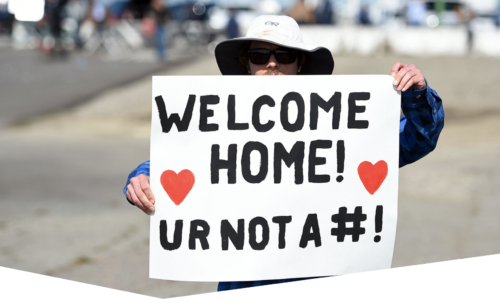
Several stories covering the public response to Coronavirus.
Coronavirus brings moratoriums on evictions, utility and water shutoffs, bank fees, and data caps
Here’s a list of the states, cities, utilities, and companies giving people a vital break on bills during the unprecedented coronavirus quarantine.
Kristin Toussaint, Fast Company, March 13, 2020
With major cities in states of emergency and thousands of Americans working from home during the coronavirus outbreak, the U.S. economy is taking a hit. Small businesses are struggling, those in the service industry are losing potential income as people practice social distancing, and some workers are just forced to go without a paycheck, whether because they can’t work remotely and have to take sick leave or because their employers are losing money themselves and have had to halt or scale back their business.
In these times, everyone needs support. How will Americans pay their rent while quarantined, if most live paycheck to paycheck? What if small business owners can’t pay their bills on time, because of the sudden drop in shoppers? Though we’re not (yet?) at the point where the government will give a lump sum of cash to every citizen, individual municipalities and corporations across the country are offering some relief measures. Here are a few examples of how governments and businesses are easing the economic burden of the coronavirus pandemic.
Moratoriums on evictions: San Jose was among the first cities to work on a plan to temporarily ban evictions resulting from the spread of COVID-19, and others are considering the same, including San Francisco and Philadelphia. Police officers in Miami, Florida, announced that they will not assist with eviction proceedings during the local state of emergency. New York is offering a one-week pause, which may not do much to help during a crisis of this length, but politicians are working on a stronger proposal.
Data caps waived: AT&T suspended broadband data caps and overage fees for home internet customers, and the FCC has since pledged to reign in potential abuses from internet service providers in general. For the next 60 days, starting March 13, the FCC has asked these companies not to terminate service for residential and small business customers and waive late fees incurred due to the economic circumstances related to the coronavirus pandemic, and to open Wi-Fi hotspots to “any American who needs them.”
Suspensions of phone and cable shutoffs: Also covered under the FCC directive, called the Keep America Connected Plan, phone and cable companies have suspended shutoffs to ensure customers have connectivity during the coronavirus pandemic. Companies that have made the pledge include Verizon, Comcast, Century Link, Charter (which operates Spectrum), Altice (branded as Optimum), Cable One (branded as Sparklight), T-Mobile, Cincinnati Bell, and more.
Suspensions of utility shutoffs: The municipalities of Detroit, Phoenix, Salinas, St. Louis, New Orleans, and more have suspended water shutoffs as they try to slow the spread of COVID-19. Utility company PG&E, which provides gas and electricity across Northern California, announced it would not shut off services because of nonpayment due to the coronavirus. Statewide, New Jersey will keep the power on for all customers, and citywide, Seattle won’t shut off water or electricity for any residents.
Co-pays waived for coronavirus-related testing: The White House announced that major health insurers have agreed to waive co-pays for COVID-19 testing (but not treatment, if you need it). Before that announcement, individual states had issued their own orders to health insurers, including New York, Washington, and California.
Bank fees and penalties waived: Beginning March 9 and for “an initial 30 days” Citibank said it would waive monthly service fees and penalties for early CD withdrawal for regular and small business customers. Other banks have said they’ll work with customers who need financial assistance on an individual basis.
 Exclusive: Zoom CEO Eric Yuan Is Giving K-12 Schools His Videoconferencing Tools For Free
Exclusive: Zoom CEO Eric Yuan Is Giving K-12 Schools His Videoconferencing Tools For Free
Alex Conrad, Forbes, March 13, 2020
On Thursday, on the heels of Zoom’s biggest day ever for downloads the day before, CEO Eric Yuan was taking the time to remotely sign up schools to free accounts of his videoconferencing software. First was a prestigious school in Silicon Valley, then two schools in the Austin, Texas area.
“They told me they’d connect with my team, and I said, ‘no, I’ll do that for you,’” said Yuan, reached by Zoom at the San Jose, California-area home that is now his office for the foreseeable future. “I did it manually myself.”
As the Covid-19 virus sweeps across the planet, leading to quarantined cities and shut-down schools, Zoom has emerged as one of the leading tools to keep businesses up and running and students learning.
On Wednesday, the most recent day for which data is available, 343,000 people globally downloaded the Zoom app, 60,000 in the U.S. alone, according to mobile intelligence firm Apptopia — compared to 90,000 people worldwide and 27,000 in the U.S. just two months ago. (Zoom doesn’t share such numbers and wouldn’t comment on a third party report.)
And overnight, having already removed the time limit from video chats using Zoom’s free service for affected regions in China and elsewhere, Yuan took another measure to help mitigate the impact of the coronavirus: he decided to remove the limit for any K-12 schools affected in Japan, Italy and the United States.
Students or teachers who fill out an online form using their school email addresses and are then verified by Zoom will have any accounts associated with that school’s domain also gain unlimited temporary meeting minutes, according to a site set up for the process overnight.
The free Basic accounts are also available by request in Austria, Denmark, France, Ireland, Poland, Romania and South Korea, a spokesperson for Zoom said. “Given that many K-12 schools are starting closing, we decided to offer Zoom access to all K-12 schools in the country starting tomorrow,” Yuan wrote in an email overnight.

Zoom CEO Eric Yuan, seen here in his San Jose office, now works from home like his 2,700-plus employees. “I think after this crisis is over, people will realize that to work at home probably is not bad.” Ethan Pines/The Forbes Collection
(Read more….)
Facing COVID-19 with Community
Instead of Fear

Eric Drake holds a sign for passengers as the Grand Princess cruise ship docks at the Port of Oakland in Oakland, California, on March 9, 2020. More than 3,000 passengers are stuck at sea after at least 21 people tested positive for the COVID-19 on-board. Photo by Josh Edelson/AFP/Getty Images
As the coronavirus spreads anxiety and panic across the globe, people are finding ways to share information and support each other.
By Lornet Turnbull, Yes!, March 10, 2020
https://www.yesmagazine.org/health-happiness/2020/03/10/coronavirus-covid19-community/
Citing the “collective solidarity” of friends and family in China and Hong Kong who have been affected by the coronavirus, a Seattle group has formed an online community to coordinate resources and provide support to those most vulnerable to the infection.
It’s called Covid19mutualaid, an Instagram account where “regular folks, especially folks of color, immigrants, people with disabilities…” can share information and find community.
“There has been a lot of collective storytelling in China and Hong Kong, and the people have gotten creative in how to support and protect each other,” one of the group’s organizers says, declining to give a name because, they said, the effort is collective, not individual. “Our hope is to share resources and strategies to protect each other and keep each other safe.”

Yadesa Bojia is a Seattle artist who was concerned about the lack of information about the coronavirus reaching the Ethiopian… (Mike Siegel / The Seattle Times
Coronavirus sparks an epidemic of people helping people in Seattle
Seattle Times, March 13, 2020
In my last column I wrote that the novel coronavirus outbreak showed us the gaps in our social safety net and the systems that we urgently need to fix.
But what this crisis has also exposed in the past week is the way in which people, guided by their hearts, are stepping up to support each other in extraordinary ways.
People like Yadesa Bojia, who is a Seattle-based artist and University of Washington graphic designer. Bojia recently became alarmed after talking with other Ethiopian American community members in his first language, Amharic, and realizing there was a lack of solid, scientifically grounded information about the coronavirus getting out to the community.
Some people he talked to thought the disease was airborne, others thought it could be cured or prevented with traditional herbal medicine or stopped with vitamin C. Bojia knew that Public Health – Seattle & King County created coronavirus fact sheets in multiple languages, but didn’t think people in his immigrant community would know where to find them.
So on March 7, Bojia decided to do something about it. Armed with the Centers for Disease Control and Prevention’s public health guidance, he started a Facebook live video to read recommendations for the community in Amharic. To his surprise, the video has been viewed 2,000 times and counting. Getting this information out, Bojia said, is “a matter of life and death,” for not just the nearly 25% of King County that are immigrants but the entire community.
Bojia is just one of many across the region who have lent their resources to help others during this unprecedented time. This pandemic has upended every part of our daily lives and sent social, economic and political shock waves throughout our society. Fear might bring out some of our worst instincts, but crises bring out the best in humanity as well.
In the days since the Seattle area became the epicenter of the outbreak, the outpouring of support has been moving and inspiring. On an individual level, people have offered free babysitting, cooking and food delivery for harried parents and medically vulnerable older adults.
After racist coronavirus fears drove down business in Seattle’s Chinatown International District, Bill Tashima, a board member for the local Japanese American Citizens League, created a Facebook group on Sunday to share ways to support small restaurants. Within days, the group had nearly 5,000 members, sharing ideas for restaurant takeout to boost business in the struggling district and creating a virtual “tip jar” that one member was using to collect donations for restaurant workers.
The artistic community, which already experiences economic insecurity in good times due to unpredictable contract-based work, saw all public events canceled like dominoes in the past week. Seattle-area author Ijeoma Oluo quickly set up a GoFundMe on Monday to raise and distribute funds for artists.
Within days, the fund raised $80,000 and distributed $10,000 and was in the process of distributing another $30,000 to artists directly impacted by loss of income due to the coronavirus. Another group of people started a live-performance streaming site on Facebook called “The Quarantine Sessions,” where artists can perform and the audience can tip the band before their performance starts.
To support those who are most vulnerable in an emergency, a grassroots effort formed in Seattle called “Covid19MutualAid,” centered on people with disabilities, people of color, undocumented people, older adults and others. In addition to recruiting volunteers for direct support such as food and grocery deliveries, the group is also advocating for systemic changes that would make communities less vulnerable in the first place.
When Seattle Public Schools announced Wednesday they would be closing abruptly the next day, people across the city jumped into action, knowing that for the 32% of Seattle school district families that are low income, school lunches are a critical part of how children stay fed.
Volunteers and staff distributed school lunches for pickup at Highland Park Elementary in West Seattle on Thursday and in Rainier Beach, Washington Building Leaders of Change or WA-BLOC and food justice organization FEEST planned a free hot lunch called “Feed the Beach” for families on Friday with additional lunches twice a week after that.
(Read more….)
Trudeau Announces Financial Help,
Travel Restrictions For Canada
In Coronavirus Update

Prime Minister Justin Trudeau gives a speech at a news conference at Rideau Cottage in Ottawa on March 13, 2020. Blair Gable / Reuters
“Addressing COVID-19 must be a Team Canada effort,” the prime minister said.
By Zi-Ann Lum, Althia Raj, Ryan Maloney, HuffPost, March 13, 2020
https://www.huffingtonpost.ca/entry/justin-trudeau-coronavirus-update_ca_5e6baff6c5b6747ef11c240d
OTTAWA — Prime Minister Justin Trudeau is pledging direct financial support to Canadians and says his government will bring in additional steps to stem the spread of COVID-19, including restricting incoming international flights to Canada.
Trudeau addressed Canadians outside Rideau Cottage, a two-storey red brick house on the grounds of Rideau Hall where he lives with his family. The prime minister is in isolation after his wife, Sophie Grégoire Trudeau, tested positive for COVID-19 on Thursday.
“On my doctor’s recommendation, I will remain in self-isolation for 14 days. I want to be clear, I have no symptoms and I’m feeling good, and technology allows me to work from home,” Trudeau said. Working remotely is ″somewhat frustrating,” he added.
“We have to do this because we have to protect our neighbours and our friends, especially our more vulnerable seniors, and people with pre-existing conditions,” he said. “We are following medical advice, as should all Canadians.”
Prime Minister Justin Trudeau gives a speech at a news conference at Rideau Cottage in Ottawa on March 13, 2020
Blair Gable / Reuters
COVID-19 is a new coronavirus disease that can cause mild to severe lung infections. There is currently no vaccine for it. The federal government is currently focused on limiting its spread. New measures were announced Friday, including:
- Recommending Canadians cancel or postpone all non-essential travel outside the country
- Urging foreign travellers to reconsider travel to Canada
- Limiting the number of airports that will receive international overseas flights
- Banning large cruise ships and ferries, those with more than 500 passengers and crew members, from docking in Canada until July 2020
- Enhancing health screening of arriving international passengers at airports
- Encouraging Canadians to practise social distancing, keeping a two-metres distance from other individuals, avoiding shopping and public transit during peak hours and limiting attendance at large gatherings.
“These are significant steps. We will do more,” Trudeau said. “Addressing COVID-19 must be a Team Canada effort.”
The prime minister said he knows Canadians are worried about the potential health and financial impacts of the pandemic. Trudeau promised the government will introduce a “significant fiscal stimulus package” to help Canadians.
Coronavirus Comments Expose
Underbelly of Ageism, Ableism

(Stock photo: Steve Buissinne/Pixabay)
Saying “only” the elderly, ill or disabled will die of COVID-19 devalues their lives
By Dorothy Ellen Palmer, Broadview, March 13, 2020
https://broadview.org/coronavirus-ageism-ableism/
Today is March 13, 2020, and the sixth day of my self-isolation. I have no symptoms of coronavirus, but I’m a high-risk, disabled senior with heart disease and hypertension, acting to protect myself and others from it. Each day of isolation feels more and more surreal, like both a really bad B-movie and a terrifyingly good novel about the end of the world.
I last saw my daughter a week ago when she brought several months’ worth of groceries. Because she works in a high risk job in social housing, I couldn’t hug her goodbye. I have no idea when, or if, I’ll see her again. I’ve cancelled my PSW, the personal service worker I depend on twice a week. I can’t risk exposing myself to someone who works in multiple seniors’ residences each day. In all conscience, I can’t add to her risk or be responsible for repeatedly bringing a high-risk person into my apartment building full of seniors.
In short, my self-isolation is total. For weeks, possibly months, I won’t have visitors and won’t be leaving my apartment. To save lives, to “flatten the curve” by preventing a surge that overwhelms our hospitals, we must all do all we can. Now, while we still have time to do so.
This is what I can do. So I’m doing it.
As a disability activist connected to my community, I’m also steeling myself to read about the illness and death of my friends. But I can’t shield myself from the virulent commentary on the news, Twitter and Facebook. In every moment of every day, I hear young, healthy, able-bodied people reassuring each other that, thank goodness, it’s “only” the “elderly” and the “ill and disabled” who will die.
This is said so often and so casually, with endless shrugs. As if seniors, chronically ill and disabled people are disposable. As if we can’t hear you. As if we aren’t your beloved parents and grandparents. As if we don’t matter and our deaths will be nothing but an inevitable and acceptable loss.
On CNN, an expert on senior care facilities coldly calls COVID-19 “almost a perfect killing machine.” A column in the Telegraph concludes that an economic silver lining will be the “culling” of seniors and the disabled. On Twitter, thousands think it’s funny to call a deadly pandemic “the Boomer Remover.”
This is the dirty underbelly of ageism and ableism.
This is the open eugenics the coronavirus reveals.
Anyone who ever repeated “OK, Boomer” as if it were harmless and funny, everyone who ignored the banning of disabled people from inaccessible buildings, have all added drops to this growing tidal wave that threatens to wash away my human rights. The wave crests here: with people nodding at the notion that when medical services are overwhelmed, of course doctors must value younger, healthier lives over older, disabled lives. When the choice must be made, seniors and disabled people are, as the Nazis put it, “life unworthy of life.”
How do we face this pandemic while upholding the values of social justice?
I think we’re all going to learn about that as the days unfold, but I have some thoughts. For now, stay home. Go nowhere that isn’t absolutely necessary. Not just to protect yourselves, but to protect others. Check in with your senior and disabled friends and neighbours. By phone, text or email; don’t come to their door. And whenever someone suggests that it’s “only” little old ladies who will die, speak up. Tell everyone about a little old lady that you love and value and want to live.
This is what we can all do. So let’s do it together.
Dorothy Ellen Palmer is a disabled senior writer, accessibility consultant, retired high school drama teacher and union activist. Her new book is called “Falling for Myself.”

